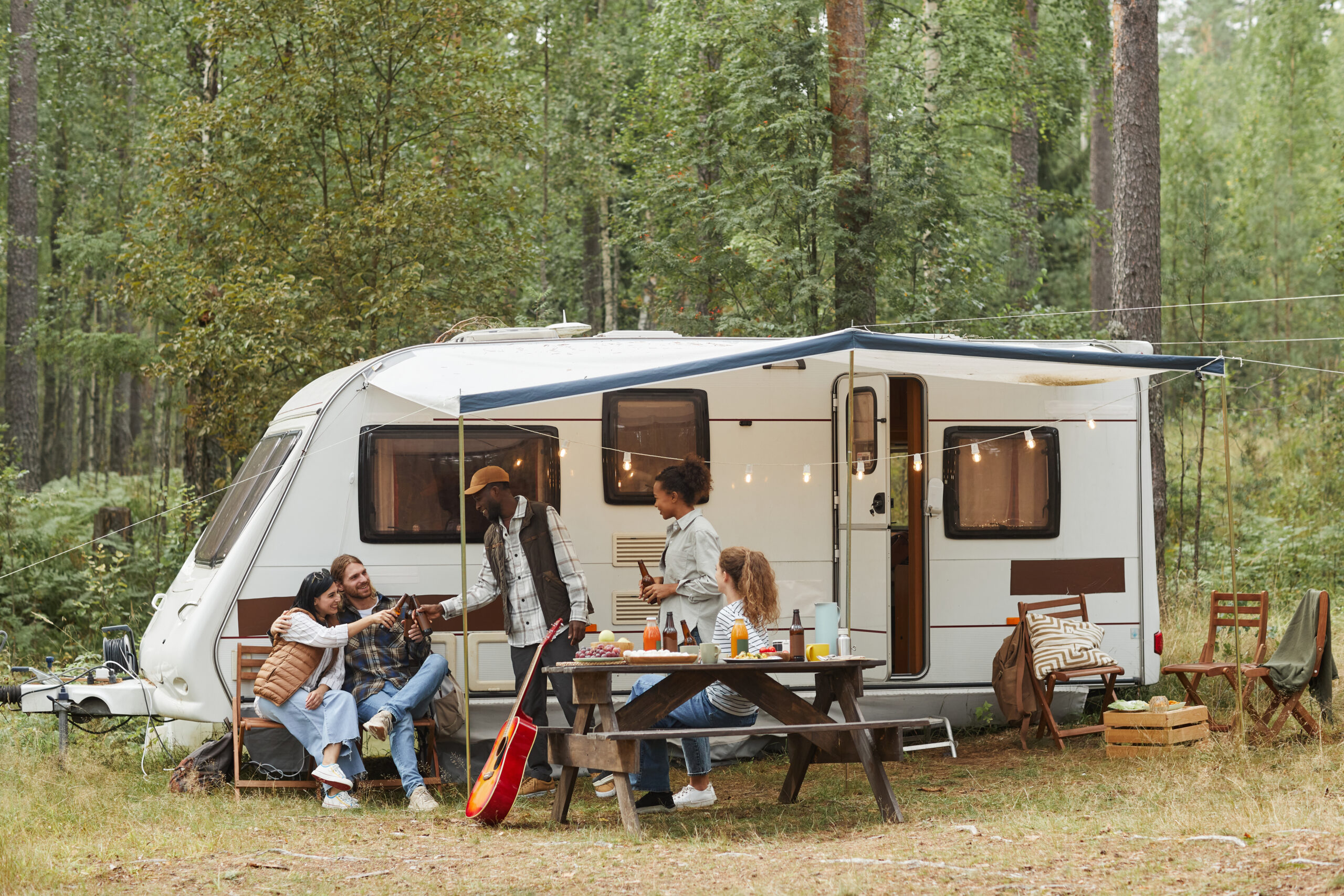RV Safety Tips
Updated June 28, 2024 | Published June 1, 2023
-
Categories:
- Recreational Vehicles
- Safe Driving
- Summer

As the summer months’ approach, it’s time to enjoy your motorhome or camper. However, there is a certain risk involved in operating these. About 70,000 to 80,000 accidents involving these types of vehicles occur each year throughout the United States. Let’s look at some tips to mitigate risk while operating motorhomes and campers.
What is an RV?
RV, short for Recreational Vehicle, is an umbrella term for motor vehicles or trailers that include a living quarters area. These include both motorhomes and campers.
Motorhomes vs Campers: what’s the difference?
A motorhome is a motor vehicle that’s similar to a travel trailer. You can live in it; it has kitchen facilities, beds, and even storage space. You don’t have to get into your car to tow a motorhome; you can do that straight from the cab. Campers are smaller that motorhomes, and they rest inside of the bed of a pickup truck; meaning you have to tow it. They usually have a bed and kitchen area, and some have bathroom and shower. The advantage of campers is that they are easier to offload and leave at an RV park for extended periods of time.
RV Safety Tips
- Make sure your current license allows you to drive your motorhome. With a few exceptions, just about any non-commercial class C license can operate a motorhome or tow a camper. The only exceptions to this are based on the dimensions of the camper, as well as what state it’s registered in. It’s best to check with the Massachusetts RMV to ensure that you won’t be in trouble if you get pulled over.
- RV’s are bigger than standard cars. Due to an RV’s size, they require extra thought behind planning your route. You’ll want to avoid going under bridges with a low height clearance, and avoiding any sharp turns as much as possible.
- Practice wide turns. It’s a good idea to practice taking wider turns in your RV before you’re on your road trip. A sharp turn could cause your RV to go into someone else’s lawn by accident, or hit a curb. There might also be impatient drivers trying to swerve around you, so watch your rear view mirrors to ensure you’re aware of them.
- Slow and steady wins the race. Operating an RV at higher speeds increases the risk of an accident dramatically. Braking will also take more time the faster you go. Make sure you maintain proper distance and speed between you and the car in front of you so that you have adequate time to break.
- Practice in a safe place. Consider taking a driving course to learn more about your vehicle before you hit the road. Practice makes perfect, and that’s no different with a large vehicle like this.
- Plan your stops in advance. To avoid making any last minute maneuvers, plan out where you’ll stop along your route before you leave the house. Know your directions well, and know when you’ll have to turn well in advance to avoid any swerving. We recommend purchasing an RV GPS unit as well to help with directions, especially if you’re driving alone.
- Keep up with RV maintenance. In order to keep your vehicle safe, you must also maintain it well. Some things you should check before your trip are:
- Belts and hoses (check for cracking)
- Headlights, turn signal, tail lights
- Hitch or towing equipment
- Tires for the correct air pressure and sufficient tread depth
- Load your vehicle properly. Make sure to evenly distribute the weight of your cargo, avoid going over the max cargo carrying capacity, to ensure your vehicle will still function properly.
- Pay attention to the weather. Inclement weather can pose a heightened risk for accidents. Planning your trip around the weather can help minimize this risk. If you do have to drive in bad weather, watch out for debris falling on the road, especially fallen power lines.
- Use a spotter when backing up. A spotter will be able to see the things that you can’t when you’re backing up. If you’re travelling with someone else, it’s a good idea to ask them to spot for you.
- Use a weight distribution hitch. A weight distribution hitch helps distribute the weight evenly across both axels of your towing vehicle. This can reduce sway and level your trailer, helping you travel more efficiently and with less risk of your vehicle tipping over.
- Carry the right emergency essentials. Make sure to stock up on essential safety gear so that you’re prepared for whatever happens on your journey.
WebFirst Insurance, LLC offers recreational vehicle insurance to keep you covered while you have fun on vacation this summer. Consider choosing WebFirst Insurance for your insurance needs.
